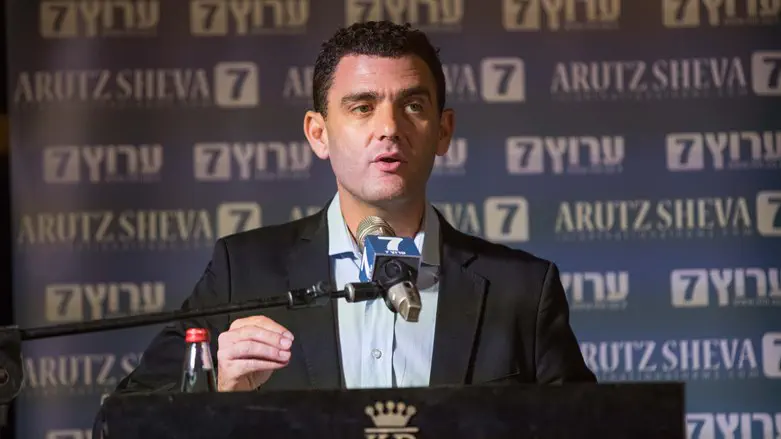
For years, huge sums of foreign money have been fueling left-wing protests in Israel, leaving deep societal scars.
The influence of foreign actors and governments on Israelis’ well-being and politics often comes up in public discourse; it is felt in Israel’s policies on its war on terror, on settlement in all parts of the country, on immigration, and is felt in relations between its various social groups. This outside influence is brought to bear for the most part through large-scale funding of Israeli left-wing nongovernmental organizations (NGOs) whose activities include disseminating anti-Israel propaganda and lawfare.
Over the past decade, dozens of NGOs identified with the left have received over a billion shekels ($300,000,000) originating from foreign governments.
NGOs identified with the right have not received a penny.
With this money these left-wing NGOs file endless series of petitions to the Israeli High Court of Justice, fund billboard campaigns, orchestrate demonstrations and marches, create high-budget presentations, testify in the deliberations of various European Union committees, and the list goes on. These organizations do not have mass support within Israel. Protestors come not quite of their own accord, mainly mobilized by the predominant elites in Israeli media, academia, and the judicial system who inflame their passions and redirect them to the politically correct place.
It is important to recognize that not all of these campaigns have been successful, but even when not, they usually leave scars or open wounds. The state's failure to pass the Prawer Law (2013) to regulate Bedouin settlement in the Negev intensified the humanitarian predicament in which the Bedouins still find themselves today; the failure to resolve the issue of illegal immigration (2018) left a bleeding wound in south Tel Aviv. The NGOs efforts to influence policy on Israel’s war on terror[1] dealt a fatal blow to deterrence with all the attendant consequences.
The same method was employed to oppose the[2]gas plan (2015): demonstrations and marches, frightening headlines, and dire predictions from experts. In retrospect, the opposition to the plan resembled the Catholic Church's attempt to prevent Galileo from declaring that the planets orbit the sun, the better to leave the faithful in their ignorance.
It was as if it might really be better for the citizens of Israel to leave the gas in the ground, and likewise, leave the illegal immigrants isolated in south Tel Aviv and the Bedouin in the Negev in their tin shacks.
The same circus took place regarding the [3]Nation-State Law(2018). A series of petitions to the High Court of Justice was filed by the same NGOs along with the New Israel Fund--an American corporation registered in Israel as a foreign company and meddling to its heart’s content. This time, they went so far in their cynical and vicious attempts to drive a wedge between the Druze and the Jewish majority as to goad the entire Druze community, which is a cornerstone of the future of the Zionist enterprise, against the elected government of Israel for purely political reasons. To this day the wound remains open.
The current iteration of this circus focuses on the new government's desire to reform the justice system. The same foreign political players--through the Israeli NGO “subcontractors” that they fund--together with the same stakeholders among the elite and in politics are raising a tumult that not only sows panic in ordinary citizens but blackmails them as well with threats. They are told that if, G-d forbid, they should continue to support judicial reform, a civil war and general rebellion will break out. This is a new low and even more dangerous.
The question of why political figures and foreign-government officials oppose judicial reform is not a mystery. Over the years, hundreds of petitions to the High Court of Justice have succeeded in shaping the attributes and unique character of the State of Israel as much as the government and Knesset themselves, if not more so. This can be described as an end run around democracy and ordinary citizens are not always aware of it.
How many of us are aware, for example, that the Movement for Quality Government in Israel, without a doubt a leading force in the fight against judicial reform, received donations from the U.S. Department of State between 2020 and 2022? How many are familiar with the fact that over the past decade the Americans have transferred over 60 million shekels ($20,000,000) to propaganda and lawfare NGOs working to change Israel's domestic policy?
At the end of the day, one can understand why there is some opposition to various measures that elected officials are trying to advance. We call this democracy and open public discourse in a free country. But it is important to see that quite often those who in actuality rock the cradle of Israeli democracy, inflaming Israelis or frightening them, are foreign actors with their own agenda. They care little about the societal repercussions of their moves or whether a rift will open in the nation.
After the process of restoring health to the Israeli judicial system, it behooves the new government to turn its attention to the issue of foreign political meddling.
Matan Peleg is the chairman of Im Tirtzu and the author of the book A State for Sale, which deals with foreign subversion.
Translated by Jerrold Schwartz, MD with assistance from Cherryl Smith, PhD